Welcome to Moda Fabrics!
Backings and going extra-wide...
Backings and going extra-wide...
Just about every quilt ever made has a backing. Or a backside. Otherwise it's just a quilt top. So let's talk about backings, 108" wide backings in particular.

I admit it. I thought I knew "enough" about most topics related to quilting and quilt fabric. I didn't know everything - not even close! - but I knew enough to make relatively informed decisions about which products I preferred. When I started teaching quilt classes and writing patterns, I believed it was vitally important to be even more knowledgeable because I knew you were going to ask. It helps that I'm a naturally experimental kind of girl so trying new products and gadgets is something I do anyway.
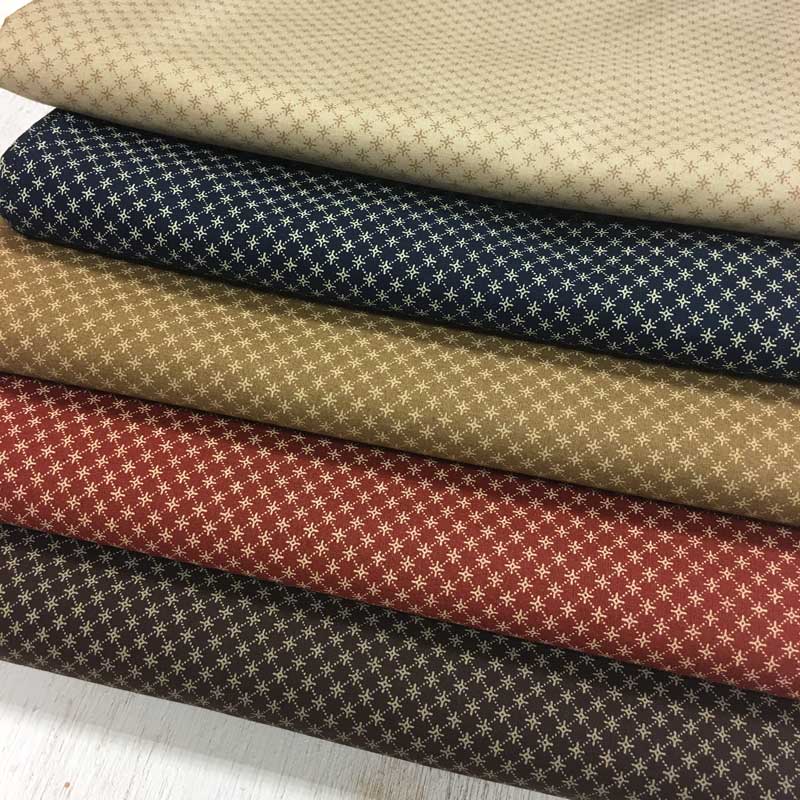
Jo Morton's Timeless 108" wide backings.
When it came to wide - also known as extra-wide and 108" wide - backing fabric, I will happily admit that my experience was limited. I'd used one once... I think it was in 1995. I didn't get the appeal. Never mind that I like scrappy-pieced backings, the truth was that I didn't care for the feel of the fabric. It wasn't quite the same quality as the "regular" 45" wide quilt fabric, it felt stiff and a bit rough.
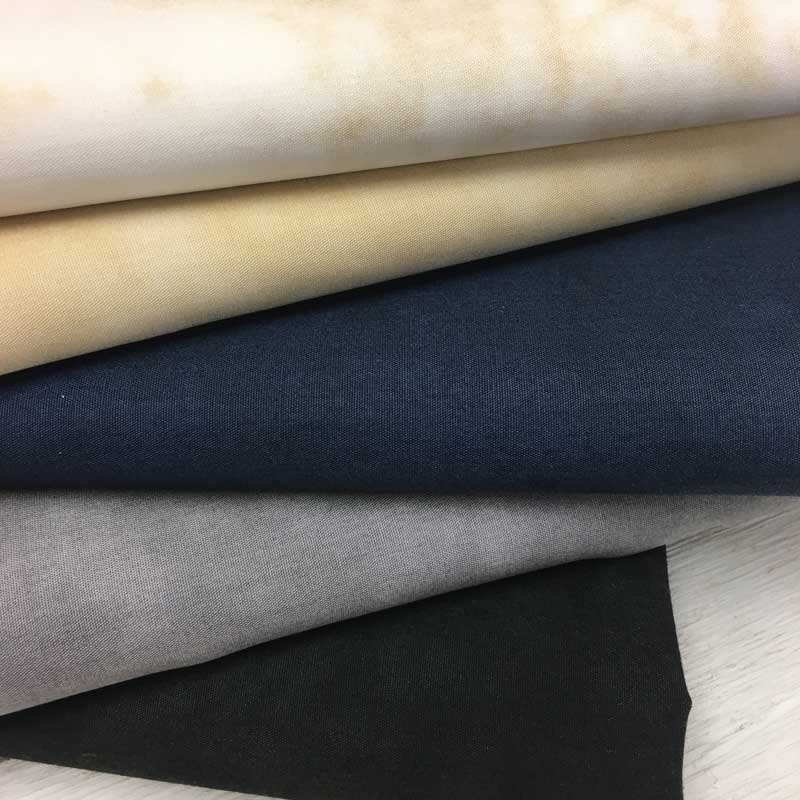
Primitive Gatherings Primitive Muslin 108" wide backing.
So I will admit to being a bit surprised to learn that Moda had well over one-hundred extra-wide backing fabrics, that they are hugely popular. It was an even bigger surprise to see and feel the fabrics... these weren't the same circa-1995 fabrics. I clearly didn't know everything there was to know about wide-backing fabrics so I asked questions of people who know about these fabrics, asked fellow quilters what they knew and thought, did some research and looked at every kind of wide-backing fabric I could find on the market.
Two things are clear - the fabrics are better, and there is a lot of misinformation about wide backings, color and dye and how wide backings are made.
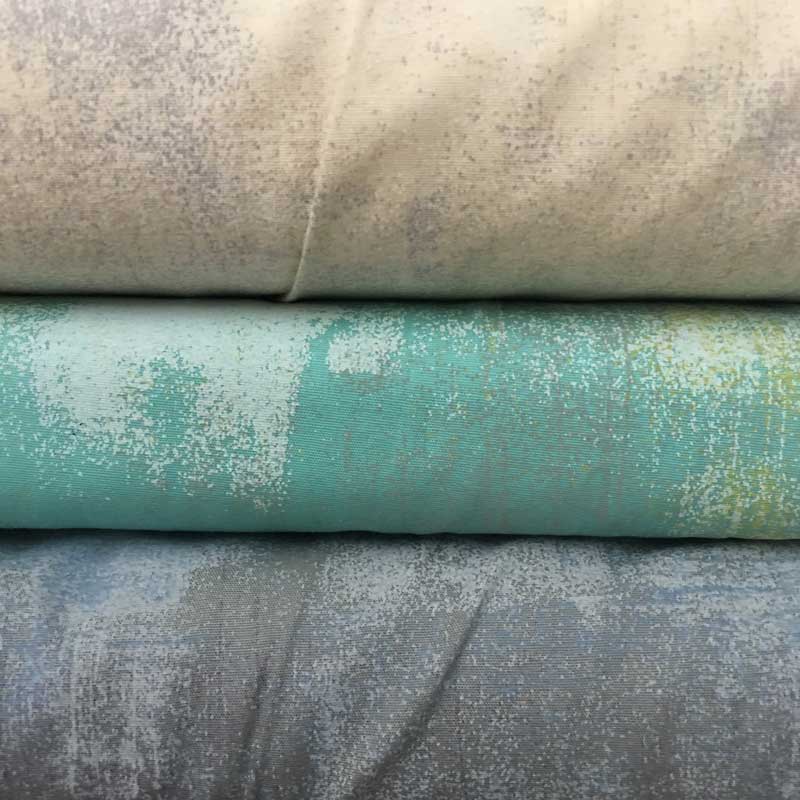
Basic Grey Grunge 108" wide backing.
So let's start with a few basics - 45" wide cotton quilting fabric is a small percentage of the cotton fabric produced in the world so the mills that produce this fabric are generally found in a few countries. Mills that produce 45" wide cotton quilting fabric rarely have the larger looms required to manufacture 108" wide fabrics. Mills and companies that produce wide fabric for quilt backs generally manufacture fabric for sheets, bedding and drapery linings. The amount of fabric produced worldwide for wide quilt backings is a tiny fraction of what is produced for the other uses.
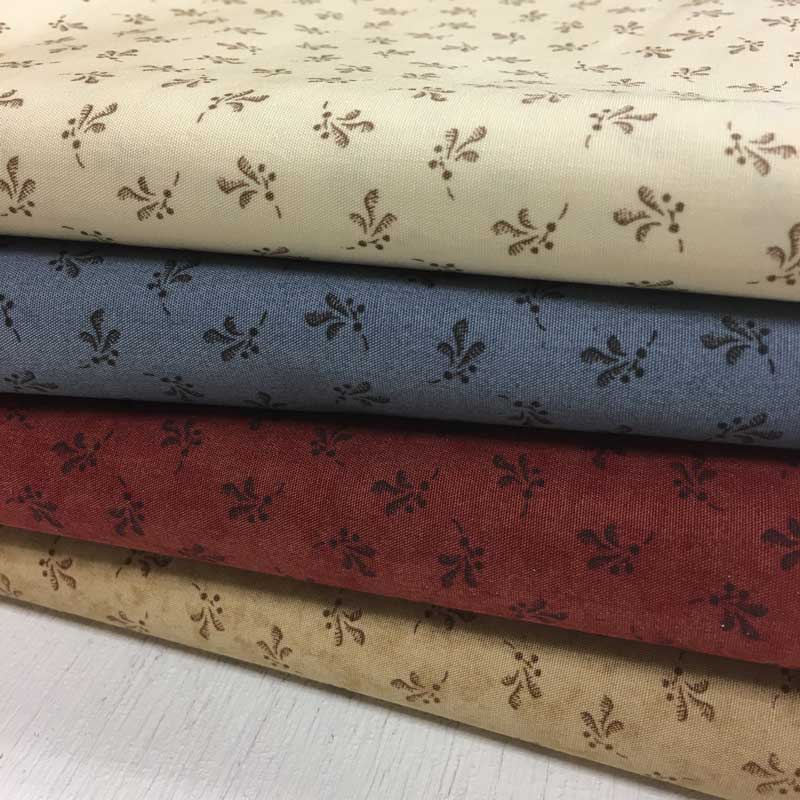
Collection for a Cause Compassion 108" wide backings.
Because the lesser quality of wide-backings had been an issue for many quilters, Moda made the decision years ago to print wide backings on a higher thread-count base fabric. Quilt-shop quality fabric has a thread-count of about 60 x 60 threads per inch. The premium wide backings like those shown here have 200 thread count so it is better quality than most quilting cotton, giving it a lovely silky finish and feel.
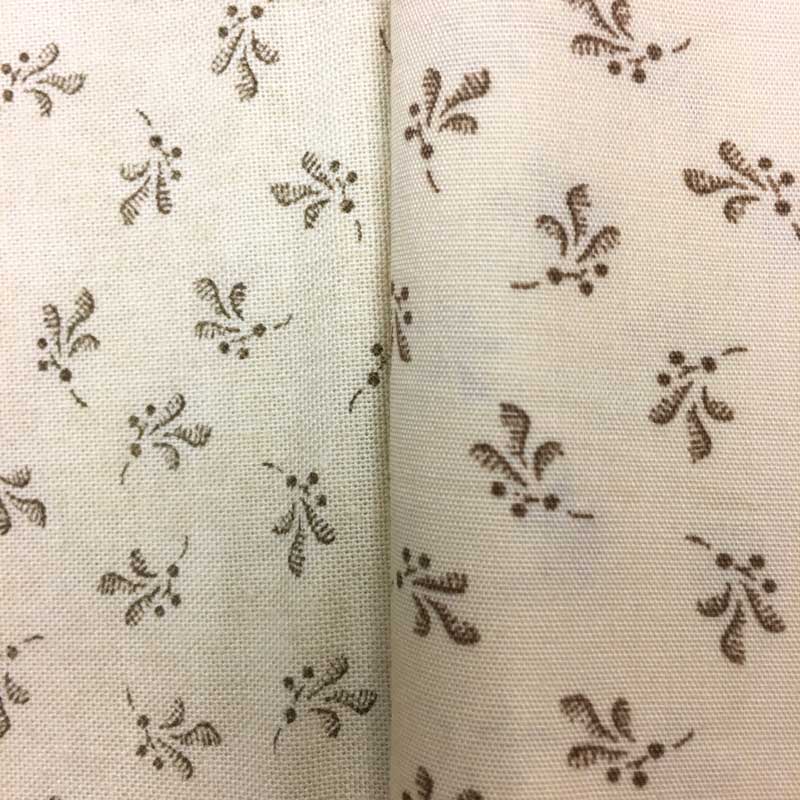
The fabric on the left is Collection for a Cause Compassion No. 46257 11 in the regular 45" quilting cotton. The fabric on the right is CFAC Compassion No. 11128 11 in the 108" wide backing - you can see that the weave is tighter, with a finer thread and a higher thread count.
The other issue that often comes up is dye loss or "bleeding". While Moda's fabrics are continually tested for quality and colorfastness, the nature of the process is such that there is always a potential for dye loss. Even using the best dyes produced, the best mills and printing-dyeing processes, some colors are always going to be difficult to control or guarantee.
There is quite a bit of literature about dye-loss, why it happens and how, how to prevent it, etc. Much of it has come about by denim and jean-aficionados wanting to know how to accelerate or prevent the fading of their jeans. But the theory is the same - when yarns or fabrics are dyed, washing the fabric will frequently result in some dye loss. There are products that will stop or minimize the process but some of those chemicals come with their own problems.
So when it comes to rich, saturated and dark colors, pre-washing the wide backings is always recommended. Cold water. Mild detergent or soap.
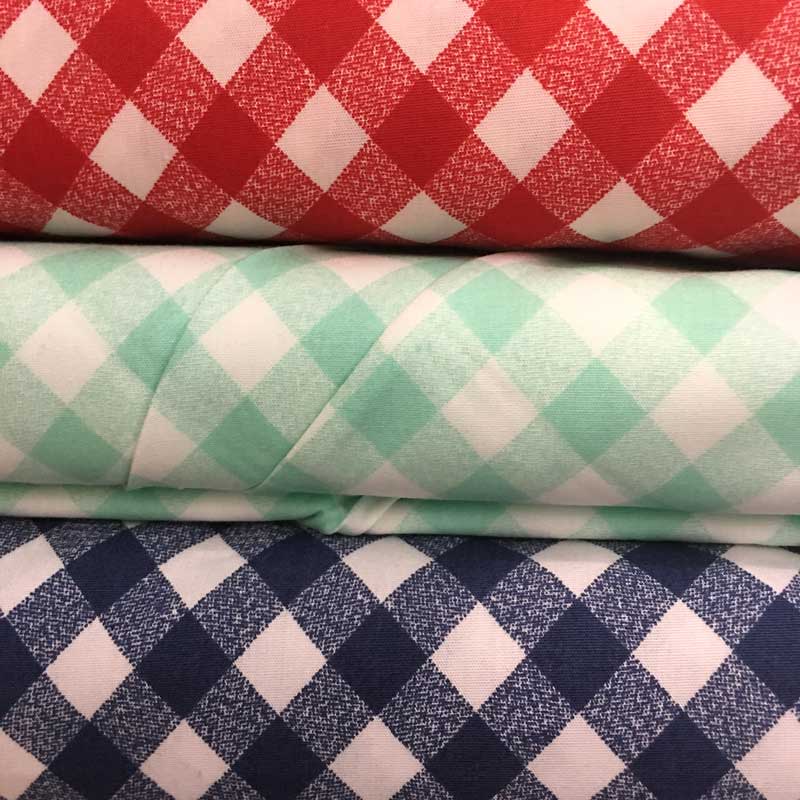
Bonnie & Camille's Vintage Picnic Gingham 108" wide backing.
**NOTE: If you have purchased the Bonnie & Camille Vintage Picnic Gingham 108" wide backing in RED, please pre-wash your fabric before using it in your quilt. Despite passing the quality control tests, we have heard that some quilters have experienced problems with the color bleeding. (If you have any questions or concerns, please contact Customer Service at - [email protected].)
Color-Catcher dye magnets can also be used, if desired. They are a good idea, if for no other reason than to see if there is excess dye in the wash water. Two sheets is really all that is needed, a whole box with a single quilt won't remove more dye. It might "feel" like it's an extra precaution better but the folks at Shout say it won't remove more dye, it just disperses it across several sheets. (Yes, I really did call them several years ago.)
Just out of curiosity, how many of you have ever thrown in a Color Catcher dye magnet with your laundry? After hearing anecdotal information years ago, I started doing it. I think most folks who worry about how much color is on the color sheet from a quilt would be shocked to see the color of the sheet after a load of medium-colored laundry.
We could talk about how economical wide backings are... but I'll save that for another day. Given that I buy cones of thread instead of spools, it's safe to say that I'll be using wide-backings for more quilts.
I wonder if my favorite text and map prints are available in 108" wide...
(P.S. Rumor has it that Moda Snuggle and Fireside will soon be available in an extra-wide width.)

Comments